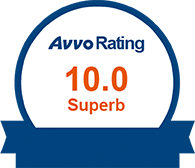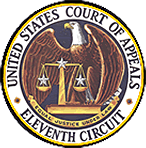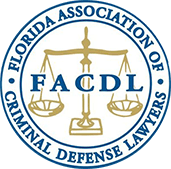
Your Case Deserves Immediate Attention - Call Hubbs Law Today
Possession with Intent to Distribute
Put an Experienced Federal Drug Crime Attorney on Your Side
Miami has been a haven for drug dealers for decades. Since the days of the “Cocaine Cowboys” drug dealers have made huge profits importing and then selling drugs to users. The illegal business can be lucrative with some dealers making millions off of the drug trade. However, the risk is enormous, as federal drug crimes carry some of the highest minimum mandatory sentences in the federal justice system.
The federal government has created a system where even the lowest level offenders are threatened with extremely high prison sentences. Their hopes are that the low-level offenders will cooperate with the government and assist law enforcement in prosecuting higher level drug dealers.
You need a Miami drug crime attorney the moment you become aware that you are being investigated or charged with a federal drug crime.
Contact Hubbs Law Firm online or by phone at (305) 570-4802 for a free, confidential consultation with our attorneys if you or a loved one has been arrested for possession with intent to distribute.
Our Firm Can Fight for Your Rights
If you were arrested for a federal drug crime in Miami, FL, it is important you contact a law firm with experienced attorneys. Hubbs Law Firm’s attorneys, E.J. and Erika Hubbs, have handled thousands of drug crimes in their career and will do everything in their power to give you the best defense in your case.
In addition, E.J. Hubbs is Board Certified in Criminal Trial Law by the Florida Bar, which means he is qualified as an expert in criminal trial law, an honor held by less than 1% of the attorneys in the state of Florida.
Hubbs Law Firm handles all types of drug cases, including possession with intent to distribute, in Miami and throughout Miami-Dade County, including Hialeah, Pinecrest, Miami Beach, South Miami, Doral, Palmetto Bay, Cutler Bay, Homestead, and anywhere else in the area.
Elements of Possession with Intent to Distribute
To prove the crime of possession with intent to distribute, the U.S. government is required to prove the following elements beyond a reasonable doubt:
- The defendant knowingly possessed the drug charged in the indictment or charging document;
- The defendant had the intent to distribute the drugs; and
- The weight of the drugs exceeded the amount charged in the indictment or charging document.
“Intent to distribute” means to deliver drugs to another person. However, it does not require money to be exchanged.
Penalties for Intent to Distribute in Florida
Under 21 U.S.C. 841 (https://www.law.cornell.edu/uscode/text/21/841), the maximum and minimum penalties for drug crimes depend on the type of controlled substance and the amount.
Some examples include:
- Cocaine
- 5 KG (or 280 grams of cocaine base) or more:
- 10 year minimum mandatory – Life
- 20 year minimum mandatory – Life if death or serious bodily injury results from the use of the controlled substance
- 20 year minimum mandatory – Life if individual has a prior felony drug conviction.
- Minimum mandatory life in prison – if individual has prior felony drug conviction and if death or serious bodily injury resulted from the use of the controlled substance
- 500 grams (or 28 grams of cocaine base) or more:
- 5 year minimum mandatory – 40 years
- 20 year minimum mandatory – Life if death or serious bodily injury results from the use of the controlled substance
- 10 year minimum mandatory – Life if individual has a prior felony drug conviction.
- Minimum mandatory life in prison – if individual has prior felony drug conviction and if death or serious bodily injury resulted from the use of the controlled substance
- 5 KG (or 280 grams of cocaine base) or more:
- Heroin
- 1 KG or more:
- 10 year minimum mandatory – Life
- 20 year minimum mandatory – Life if death or serious bodily injury results from the use of the controlled substance
- 20 year minimum mandatory – Life if individual has a prior felony drug conviction.
- Minimum mandatory life in prison – if individual has prior felony drug conviction and if death or serious bodily injury resulted from the use of the controlled substance
- 100 grams or more:
- 5 year minimum mandatory – 40 years
- 20 year minimum mandatory – Life if death or serious bodily injury results from the use of the controlled substance
- 10 year minimum mandatory – Life if individual has a prior felony drug conviction.
- Minimum mandatory life in prison – if individual has prior felony drug conviction and if death or serious bodily injury resulted from the use of the controlled substance
- 1 KG or more:
- Methamphetamine
- 50 grams (or 500 grams of a mixture) or more:
- 10 year minimum mandatory – Life
- 20 year minimum mandatory – Life if death or serious bodily injury results from the use of the controlled substance
- 20 year minimum mandatory – Life if individual has a prior felony drug conviction.
- Minimum mandatory life in prison – if individual has prior felony drug conviction and if death or serious bodily injury resulted from the use of the controlled substance
- 5 grams (or 50 grams of a mixture) or more:
- 5 year minimum mandatory – 40 years
- 20 year minimum mandatory – Life if death or serious bodily injury results from the use of the controlled substance
- 10 year minimum mandatory – Life if individual has a prior felony drug conviction.
- Minimum mandatory life in prison – if individual has prior felony drug conviction and if death or serious bodily injury resulted from the use of the controlled substance
- 50 grams (or 500 grams of a mixture) or more:
- Phencyclidine (PCP)
- 100 grams (or 1KG of a mixture) or more:
- 10 year minimum mandatory – Life
- 20 year minimum mandatory – Life if death or serious bodily injury results from the use of the controlled substance
- 20 year minimum mandatory – Life if individual has a prior felony drug conviction.
- Minimum mandatory life in prison – if individual has prior felony drug conviction and if death or serious bodily injury resulted from the use of the controlled substance
- 10 grams (or 100 grams of mixture) or more:
- 5 year minimum mandatory – 40 years
- 20 year minimum mandatory – Life if death or serious bodily injury results from the use of the controlled substance
- 10 year minimum mandatory – Life if individual has a prior felony drug conviction.
- Minimum mandatory life in prison – if individual has prior felony drug conviction and if death or serious bodily injury resulted from the use of the controlled substance
- 100 grams (or 1KG of a mixture) or more:
- Lyseric Acid Diethylamide (LSD)
- 10 grams or more:
- 10 year minimum mandatory – Life
- 20 year minimum mandatory – Life if death or serious bodily injury results from the use of the controlled substance
- 20 year minimum mandatory – Life if individual has a prior felony drug conviction.
- Minimum mandatory life in prison – if individual has prior felony drug conviction and if death or serious bodily injury resulted from the use of the controlled substance
- 1 gram or more:
- 5 year minimum mandatory – 40 years
- 20 year minimum mandatory – Life if death or serious bodily injury results from the use of the controlled substance
- 10 year minimum mandatory – Life if individual has a prior felony drug conviction.
- Minimum mandatory life in prison – if individual has prior felony drug conviction and if death or serious bodily injury resulted from the use of the controlled substance
- 10 grams or more:
- Marijuana
- 1000 KGs or more:
- 10 year minimum mandatory – Life
- 20 year minimum mandatory – Life if death or serious bodily injury results from the use of the controlled substance
- 20 year minimum mandatory – Life if individual has a prior felony drug conviction.
- Minimum mandatory life in prison – if individual has prior felony drug conviction and if death or serious bodily injury resulted from the use of the controlled substance
- 100 KGs or more:
- 5 year minimum mandatory – 40 years
- 20 year minimum mandatory – Life if death or serious bodily injury results from the use of the controlled substance
- 10 year minimum mandatory – Life if individual has a prior felony drug conviction.
- Minimum mandatory life in prison – if individual has prior felony drug conviction and if death or serious bodily injury resulted from the use of the controlled substance
- 50 KGs or more:
- 0 – 5 years
- 0 – 10 years if individual has a prior felony drug conviction
- 1000 KGs or more:
Defenses for Intent to Distribute
Simply because you are being investigated or charges with possession with intent to distribute does not mean you will be found guilty of the offense. You may have legal defenses to your case or may be able to mitigate your sentence.
Some examples include:
- No Knowledge – Many times, drugs are found in areas that are accessible to multiple individuals. The government must prove beyond a reasonable doubt that you had knowledge of the drugs. If the drugs are not found on your person and are found in an area that is accessible to more than one individual, you may be able to argue that you did not have knowledge the drugs were there.
- No Intent to Distribute – Some individuals are charged with possession with intent to distribute for drugs that they use for personal consumption. If there is no evidence that you intended to distribute the drugs, such as the recovery of individual bags of drugs, scales, grinders, money, etc., then you may have a legal defense to the crime.
- Motions to Suppress – The recovery of drugs in federal investigations unfortunately sometimes involves the violation of an individual’s constitutional rights. Such examples include illegal search warrants, illegal traffic stops, and illegal searches. Depending on the facts of your case, a motion to suppress could result in suppressing all of the evidence of drugs, which could result in the dismissal of the charge.
- Substantial Assistance – While not a legal defense to the charge, substantial assistance could be used to attempt to receive a lower sentence. See Rule 35 of the Federal Rules of Criminal Procedure (https://www.law.cornell.edu/rules/frcrmp/rule_35). Substantial assistance essentially means that you cooperate with the government. Such cooperation could include disclosing information on other suspects or co-defendants, working undercover, and testifying for the government in court. There are no guarantees when you provide substantial assistance. After you finish your cooperation with the government, the government will decide whether to give you a benefit, such as a reduction in the base offense level for acceptance of the responsibility, a recommendation for a sentence below the minimum mandatory sentence or guidelines, or dismissal of all charges.
- Safety Valve – Besides providing substantial assistance, the safety valve exception is the only way for a defendant to receive a sentence that is less than the minimum mandatory sentence required by the statute; See 8 U.S.C. 3553(f): https://www.law.cornell.edu/uscode/text/18/3553. To qualify for the safety valve exception you must meet the following requirements:
- The defendant does not have more than one criminal history point, as determined under the sentencing guidelines before application of subsection (b) of §4A1.3 (Departures Based on Inadequacy of Criminal History Category);
- The defendant did not use violence or credible threats of violence or possess a firearm or other dangerous weapon (or induce another participant to do so) in connection with the offense;
- The offense did not result in death or serious bodily injury to any person;
- The defendant was not an organizer, leader, manager, or supervisor of others in the offense, as determined under the sentencing guidelines and was not engaged in a continuing criminal enterprise, as defined in 21 U.S.C. § 848; and
- Not later than the time of the sentencing hearing, the defendant has truthfully provided to the government all information and evidence the defendant has concerning the offense or offenses that were part of the same course of conduct or of a common scheme or plan, but the fact that the defendant has no relevant or useful other information to provide or that the government is already aware of the information shall not preclude a determination by the court that the defendant has complied with this requirement.
Contact Our Criminal Defense Attorneys Today
If you were charged with possession with intent to distribute any drug, you need experienced legal representation immediately. Hubbs Law Firm’s attorneys, Erika and E.J. Hubbs, are both former prosecutors with substantial trial experience.
We represent the accused for all types of federal criminal cases in Miami and throughout Miami-Dade County, including Hialeah, Pinecrest, Miami Beach, South Miami, Doral, Palmetto Bay, Cutler Bay, Homestead, and anywhere else in the area.
Hubbs Law Firm offers free consultations on state and federal drug cases. At your consultation, our Miami drug crime defense attorneys will thoroughly evaluate your case and inform you of any defenses you may be entitled to.
Call (305) 570-4802 today to schedule your consultation or contact us online.
Additional Resources
- District Court for the Southern District of Florida – Find information for every court location in the Southern District of Florida, attorney information, judge information, and case information.
- Federal Bureau of Investigations (FBI) – The FBI is the federal law enforcement agency in charge of enforcing numerous federal crimes including terrorism, counterintelligence, cybercrime, corruption, civil rights violations, organized crime, white collar crime, violent crime, and more.
- United States Drug Enforcement Administration (DEA) – The DEA is the federal law enforcement agency in charge of investigating federal drug crimes in the United States
- United States Marshalls – the United States Marshalls are the law enforcement agency in charge of enforcing orders of federal courts in the United States. This includes providing security in the courtroom and executing fugitive arrest warrants.
- Bureau of Justice Statistics – Find information on statistics for all types of crimes including arrests and convictions

Attorneys E.J. & Erika Hubbs
As professional Miami criminal defense attorneys, we take every case personally give every client the deliberate care it deserves. Our clients become part of our family and we fight relentlessly for their rights. Read more about us to find out how we can help you.

-
Mr. Hubbs’ consistency throughout our case had us feeling at ease
Melissa Fernandez -
Happy Out of State Client
Michele D -
I am highly satisfied with the results
Kie Smith














